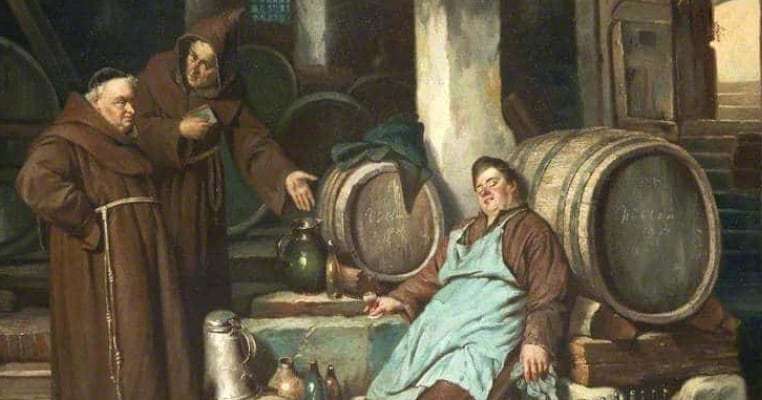When we read about monks and friars in medieval history, it is easy to conflate the two. We think, perhaps, of men dedicated to a boring life behind a wall, rarely encountering the outside world. A person’s status as a monk or friar is usually just an additional biographical detail, and we look no further into the matter. It’s the same for female monks and friars, conflated rather dismissively under the umbrella term of nun. But in so doing, we are making a grave error, for monks and friars (and their female equivalents) were very different propositions.
Even when we make the brave distinction of monk and friar, within these two categories there were several different orders with very different styles of living and working. There were good reasons why someone might prefer to become, for example, an Augustinian than a Benedictine, and so we should make ourselves aware of the differences. Moreover, we should also be aware of the role nuns, monks, and friars played in medieval society. So, what was the point of them, how do they differ, and why should you care? Read on for your essential reference guide to monks, nuns, and friars.

Friars vs. Monks
So, first up, let’s learn the difference between a friar and a monk. A monk is a person who lives in a cloistered community with other monks, mostly separated from the rest of society. These communities, known as monasteries, are intended to provide for all of the monks’ needs, so that individuals need not leave the compound, except for very special exceptions, such as pilgrimages, diplomatic necessity, monastic administration, or danger. Thus they contained libraries, schools, churches, kitchens, and farms. The monk lived separately from the rest of society because their life was dedicated to the worship of God.
Monks take a vow of poverty, chastity, and obedience, with some variations and additions between types of monastic order. Friars take the same, or largely similar, vows, but their job is very different. For whilst monks live apart from society, friars involve themselves in it. Friars go out into the outside world, and preach the Word of God to ordinary people. Whereas a monk is tied to a single monastery, friars are itinerant, meaning that they move from place to place doing their work. They go wherever they are needed, living temporarily in one of their order’s many religious houses.
Another important distinction is the way monks and friars made a living. Monasteries were self-sufficient, growing their own crops which some orders traded, and buttressing their earnings from leasing monastic lands to tenants for rent. Friars, by contrast, were mendicants. That is, they relied on the generosity of others, and would beg alms from people to sustain their way of life. The specific way of mendicancy differs from order of friar to order of friar, but we’ll get onto those differences in due course. So: monks were cloistered, unmoving, and self-sufficient; friars were out in the world, itinerant, and mendicant.
As for nuns, the term can refer to female monks and friars. The monk-type were simply known as nuns, and like their male counterparts were dedicated to a life of devotion to God largely away from wider society in one place. Friar-types were known as sisters and relied upon the charity of others, but didn’t always travel the world, wherever they were needed, to preach the word of God. Sometimes nuns in the monastic tradition lived separately but alongside men in double-monasteries, or in their own single-sex dwellings, known as convents. We’ll look at specific types of nun later.

